
Najaf: The Sacred Jewel of Iraq
Najaf, located in southern Iraq, is a city of profound religious significance and historical depth. It is home to the holy shrine of Imam Ali, the first cousin of Prophet Muhammad and a revered figure in Islam. The shrine attracts millions of pilgrims from around the world, making Najaf one of the most important spiritual centers for Shia Muslims. Visitors are often struck by the city's serene atmosphere, which contrasts with its bustling pilgrimage activities. Besides its religious landmarks, Najaf offers a glimpse into Iraq's rich history and culture. The city's markets, known as souks, are vibrant with the colors and scents of traditional Iraqi goods. From handcrafted jewelry to aromatic spices, these markets provide a unique shopping experience. Najaf is also known for its traditional cuisine, which includes dishes like kebabs, rice, and various types of bread. For those interested in history, the Wadi-us-Salaam cemetery in Najaf is a must-visit. It is one of the largest cemeteries in the world and holds immense historical and cultural importance. The city’s libraries and educational institutions have played a crucial role in preserving Islamic scholarship over the centuries. Najaf's blend of spirituality, history, and culture makes it a compelling destination for any traveler.
Local tips in Najaf
- Dress modestly, especially when visiting religious sites, to show respect for local customs.
- Plan your visit during cooler months, as temperatures can be extremely high in summer.
- Learn a few basic Arabic phrases; locals appreciate the effort and it enhances your travel experience.
- Always carry some local currency (Iraqi dinar) for small purchases in markets and local shops.
- Consider hiring a local guide to gain deeper insights into the historical and religious significance of the sites.
Najaf: The Sacred Jewel of Iraq
Najaf, located in southern Iraq, is a city of profound religious significance and historical depth. It is home to the holy shrine of Imam Ali, the first cousin of Prophet Muhammad and a revered figure in Islam. The shrine attracts millions of pilgrims from around the world, making Najaf one of the most important spiritual centers for Shia Muslims. Visitors are often struck by the city's serene atmosphere, which contrasts with its bustling pilgrimage activities. Besides its religious landmarks, Najaf offers a glimpse into Iraq's rich history and culture. The city's markets, known as souks, are vibrant with the colors and scents of traditional Iraqi goods. From handcrafted jewelry to aromatic spices, these markets provide a unique shopping experience. Najaf is also known for its traditional cuisine, which includes dishes like kebabs, rice, and various types of bread. For those interested in history, the Wadi-us-Salaam cemetery in Najaf is a must-visit. It is one of the largest cemeteries in the world and holds immense historical and cultural importance. The city’s libraries and educational institutions have played a crucial role in preserving Islamic scholarship over the centuries. Najaf's blend of spirituality, history, and culture makes it a compelling destination for any traveler.
When is the best time to go to Najaf?
Iconic landmarks you can’t miss
Kufa Mosque
Explore the Great Mosque of Kufa, a historic and spiritual landmark in Iraq, rich with Islamic heritage and architectural beauty.
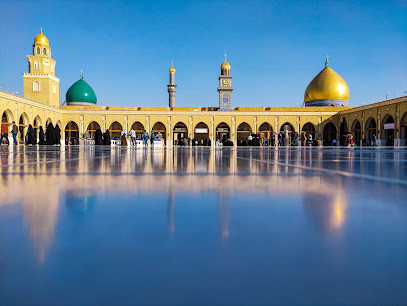
Imam Ali Holy Shrine
Discover the spiritual heart of Najaf at the Imam Ali Holy Shrine, a beacon of Islamic faith and architectural brilliance.
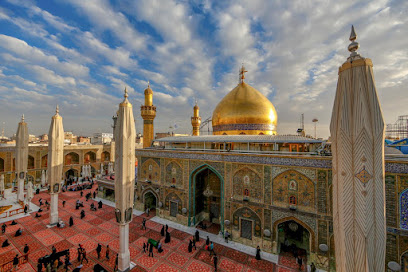
Al-Sahla Great Mosque
Discover Al-Sahla Great Mosque in Najaf: A sacred site with deep historical roots and spiritual significance for Shia Muslims.
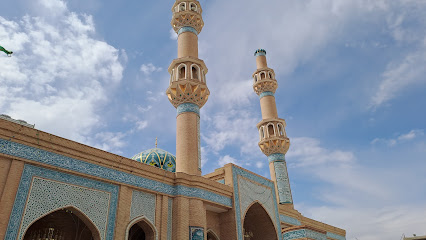
Al sheraa complex for Entertainment
Experience leisure, dining, and shopping at Najaf's premier entertainment complex. Gardens, restaurants, and shops await!
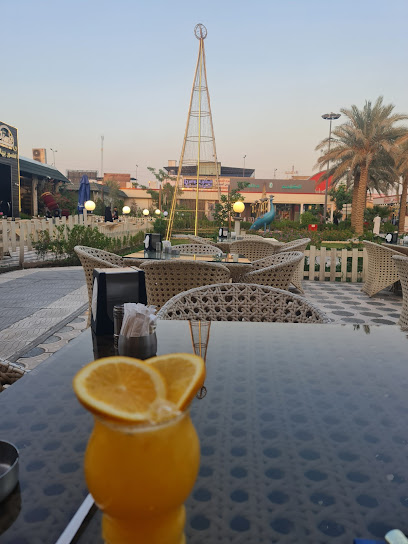
Garden revolution of the twentieth
A tranquil memorial park in Kufa, offering a space for reflection and remembrance amidst historical Najaf Governorate.
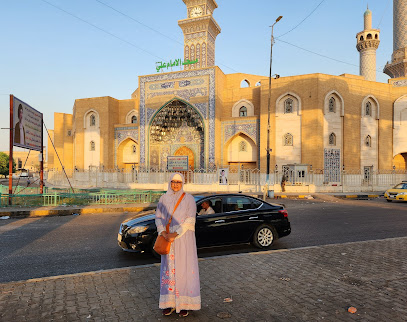
Najaf International Airport
Your gateway to the holy city of Najaf, connecting you to destinations across the Middle East.
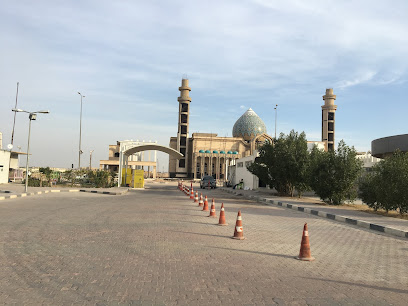
Martyr Monument
A poignant Baghdad landmark commemorating Iraqi martyrs, featuring a stunning split turquoise dome and offering historical insights.
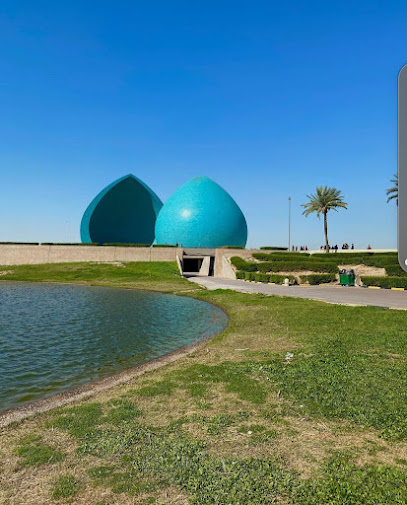
Najaf Amusements Park
Experience thrilling rides and family fun at Najaf Amusements Park, a vibrant nighttime destination in the heart of Najaf, Iraq.
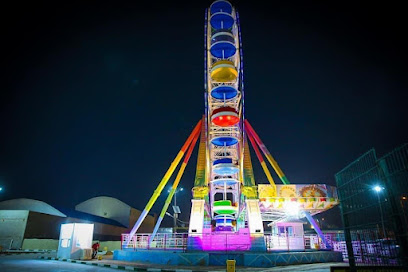
Marah City
Experience thrilling rides and family fun at Marah City, Najaf's premier amusement park for unforgettable memories.
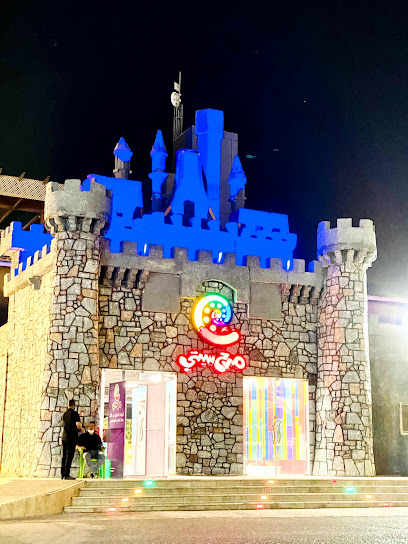
فندق زمزم السياحي
Comfortable and conveniently located hotel in Najaf, ideal for pilgrims and travelers seeking a relaxing stay near the holy sites.
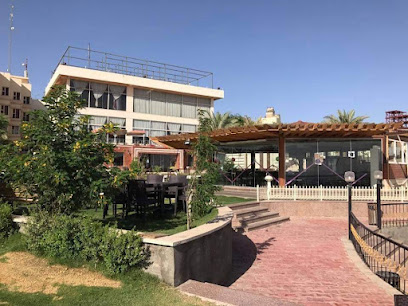
Najaf International Exhibition
Experience the vibrant culture of Najaf at the International Exhibition, a showcase of local crafts, products, and traditions.
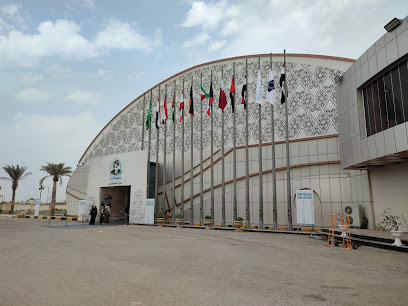
Al-Ukhaidir Fortress
Discover the stunning Al-Ukhaidir Fortress in Al-Karbala, a renowned archaeological site rich in history and spectacular Islamic architecture.
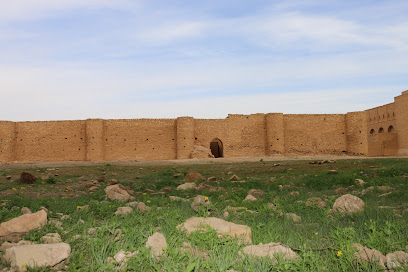
Masjid e Hannah shopping mall
Experience modern shopping with a cultural touch at Najaf's Masjid e Hannah Shopping Mall.
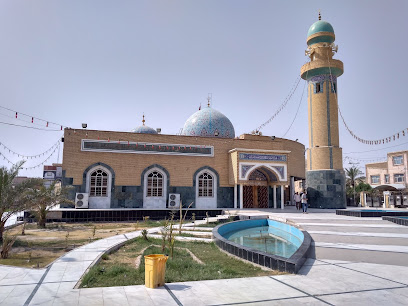
House of Imam Ali (as)
Discover the historical and spiritual significance of Imam Ali's house in Kufa, a beacon of Islamic heritage and tranquility.
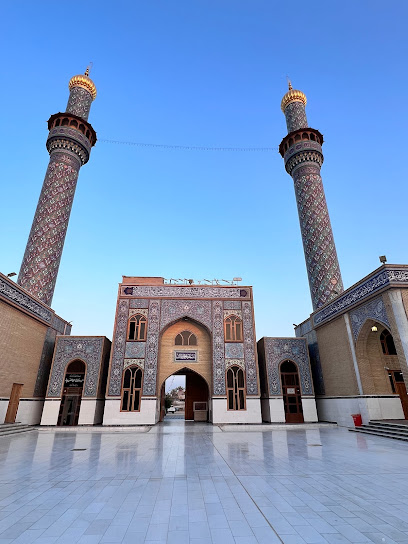
Al Najaf Residence
Experience comfort and cultural immersion at Al Najaf Residence, your home away from home in the heart of the holy city, steps from Imam Ali Shrine.
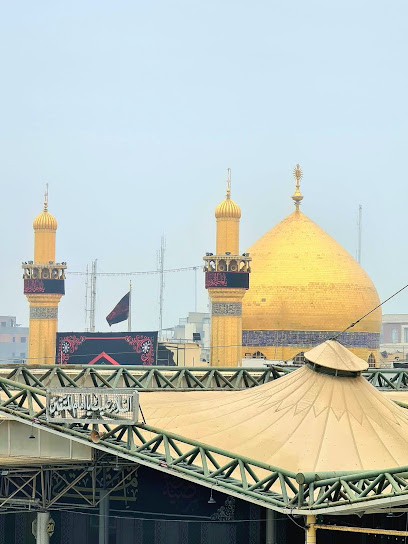
Unmissable attractions to see
قبر المرحوم الصادق غريب مويش الدريساوي
Explore the peaceful resting place of Al-Mahroum Al-Sadiq in Najaf, a site of profound spiritual and historical significance.
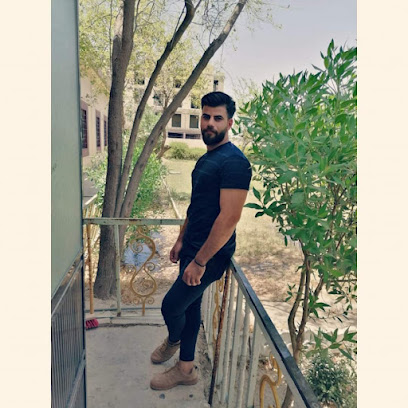
قبر المرحوم علي جهاد حجي
Discover the spiritual and historical essence of the Shrine of Imam Jihad Haji in Najaf, a must-visit for travelers seeking cultural richness.
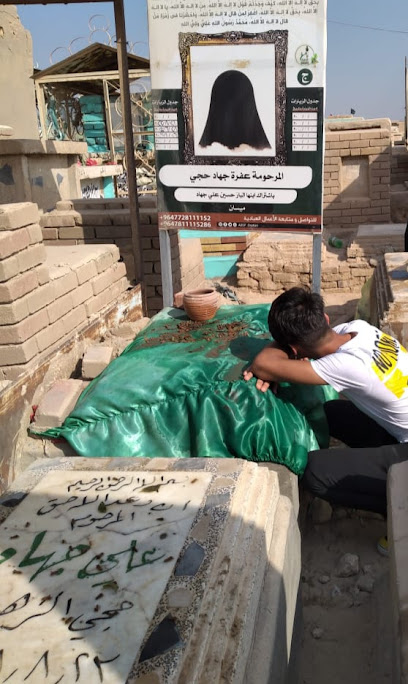
مقبره الحاج صالح مهدي درويش
A peaceful shrine in Najaf, the Tomb of Al-Haj Salih Mahdi Darwish offers a serene space for reflection and prayer.

ارض ال حسين ياسين
Discover the serene beauty and rich history of the Land of Hussein Yasin in Najaf, a hidden gem for travelers seeking authentic experiences.
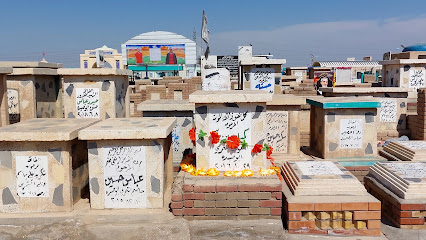
قبر الحجية أم أياد الحاج يونس
Explore the sacred tomb of Imam Ali in Najaf, a historical and spiritual landmark that attracts pilgrims and tourists alike.
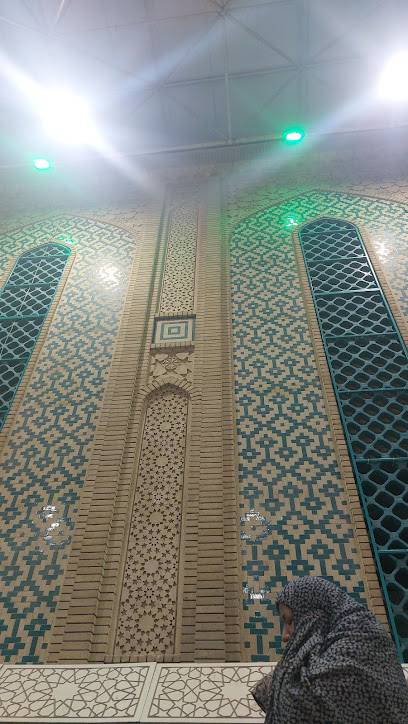
قبر المرحوم كاطع ثجيل الفوادي
Discover the spiritual essence of Najaf at Kafr Thajil Al-Fawadi, a revered tourist attraction steeped in rich cultural and religious history.
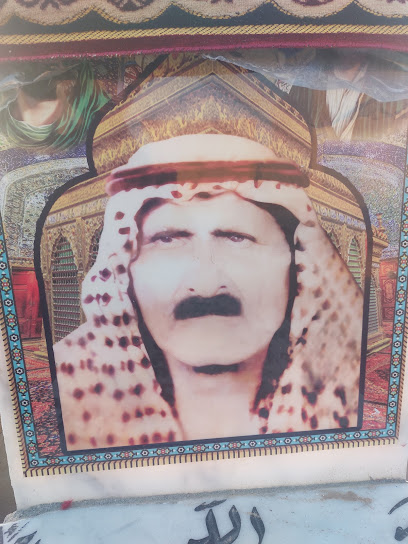
المرحوم رشيد عبد علي علوخ الغرباوي
Explore the remarkable Al-Rashid Abdul Ali Algharbawi in Najaf, an enchanting blend of history, culture, and tranquility.

قبر الحاج احمد جسام الجبوري
Explore the serene shrine of Sheikh Ahmed Al-Jabouri in Najaf, a remarkable tourist attraction steeped in history and spiritual significance.

قبر المرحوم الحاج غازي فاخر البهادلي
A place of respect and remembrance in the sacred city of Najaf, the Tomb of Al-Hajj Ghazi Fakher Al-Bahadli offers a serene space for reflection.
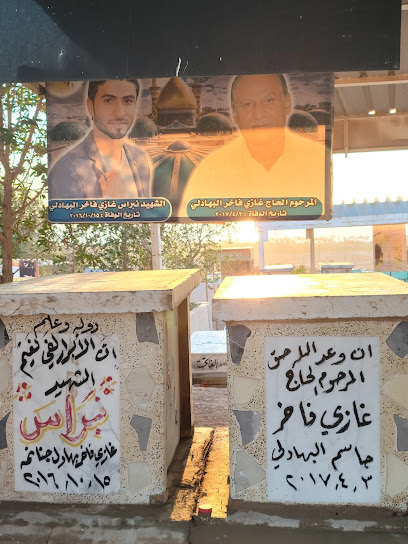
مدفن المرحوم علي أمان محمد
Visit the Alī ibn Abī Ṭālib Shrine in Najaf, a monumental site of spiritual significance and exquisite architectural beauty in Iraq.

المرحوم الشيخ كاظم صافي سلمان الجنابي
Explore the spiritual and architectural wonders of Al-Mahroom Sheikh Kazim Safi Salman's Shrine in Najaf, a must-see destination for all travelers.

قبر المرحوم ابو فراس العضيمي
Explore the historic Tomb of Abu Firas Al-Dhiyami in Najaf, a site of deep spiritual significance and stunning Islamic architecture.

نعيمه صالح جاسم
Discover the rich spiritual and cultural heritage of Najaf, a holy city that captivates with its stunning architecture and vibrant local life.

قبر المرحوم الحاج فيصل عودة ناصر الرسيتمي
Explore the serene tomb of Al-Hajj Faisal Awda Nasser Al-Rasiti in Najaf, a sacred site of pilgrimage with stunning architecture and rich cultural significance.

قبر المرحوم جاسم محمد ( الزيدي )
Discover the spiritual and historical essence of Najaf at the revered Tomb of Al-Zaydi, a must-visit destination for all travelers.

Essential places to dine
Thabit Restaurant
Experience authentic Iraqi cuisine at Thabit Restaurant in Najaf - where every dish tells a story of tradition and flavor.
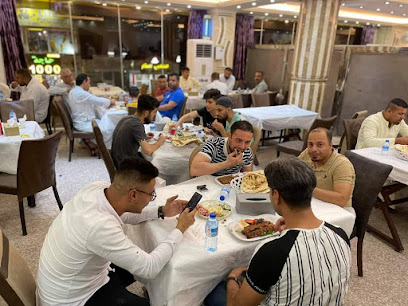
Sobat Restaurant
Discover authentic Iraqi cuisine at Sobat Restaurant in Najaf - a delightful culinary journey awaits every visitor.
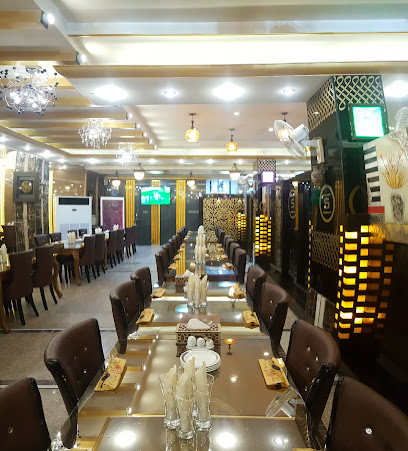
Alazaeem Restaurant
Experience the rich flavors of Iraq at Alazaeem Restaurant in Najaf, where tradition meets modern dining in an inviting atmosphere.
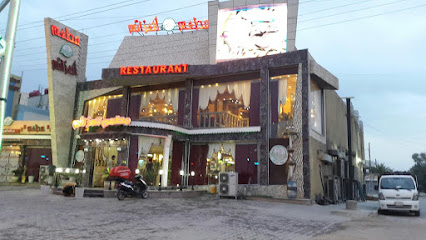
FOOD LAND NAJAF
Experience the rich flavors of Iraqi cuisine at Food Land Najaf—where tradition meets modern culinary artistry in Kufa.
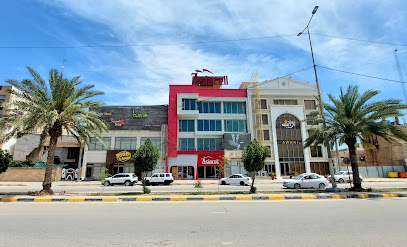
Abou Mokhlis Restaurant
Experience the essence of Iraqi cuisine at Abou Mokhlis Restaurant in Najaf—where tradition meets taste.
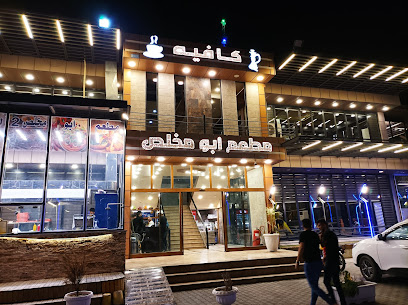
Shukur Sons Restaurant and Grill
Experience authentic Iraqi flavors at Shukur Sons Restaurant and Grill in Najaf - where every meal is a celebration of taste.
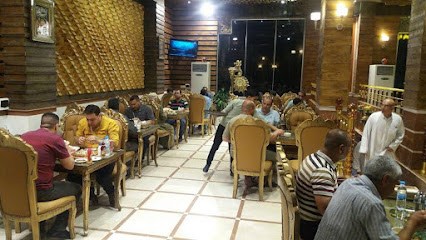
مزاج الشام - Mazaj Alsham
Discover authentic Middle Eastern flavors at Mazaj Alsham in Najaf – a must-visit restaurant for every traveler.
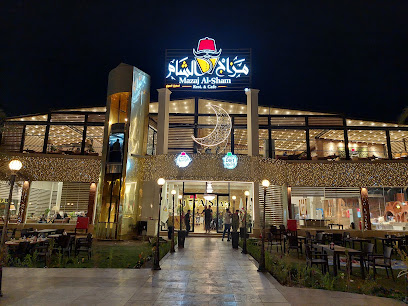
مطعم نينوى . كبة . بيتزا . لحم بعجين
Discover authentic Iraqi cuisine at مطعم نينوى in Najaf, offering delicious كبة, بيتزا, and لحم بعجين at affordable prices.
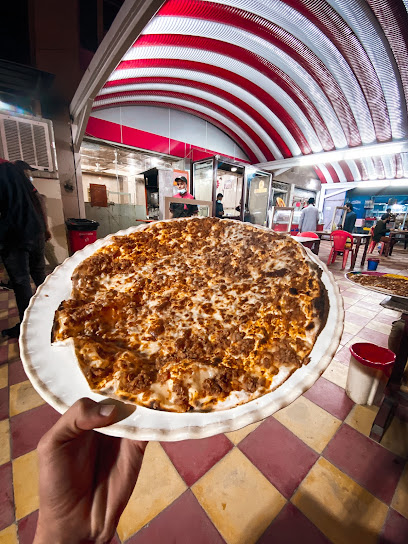
مطعم وكافيه بيانو النجف - Piano Restaurant & Cafe
Experience authentic Iraqi cuisine at Piano Restaurant & Cafe in Najaf – where tradition meets taste in every delightful dish.
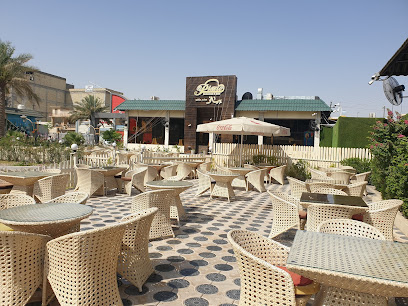
مطعم باقلاء بالدهن سيد عباس الاشبال
Discover authentic Iraqi flavors at مطعم باقلاء بالدهن سيد عباس الاشبال in Najaf—where tradition meets taste.
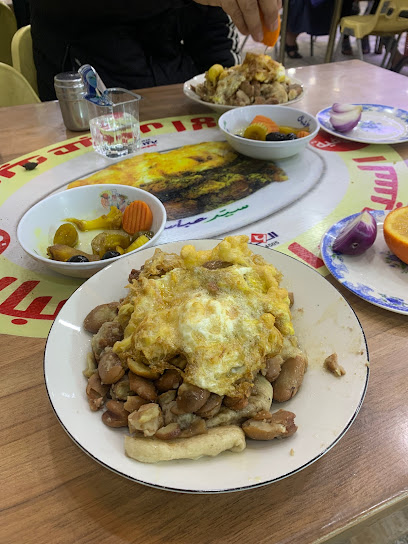
Anbar Restaurant
Experience authentic Iraqi cuisine at Anbar Restaurant in Najaf – where tradition meets flavor in every dish.
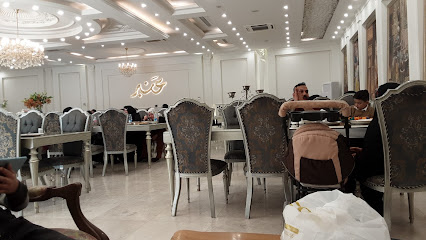
Aekeche Restaurant
Discover authentic Iraqi cuisine at Aekeche Restaurant in Najaf - where every dish tells a story.
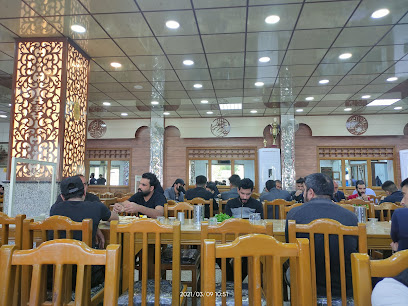
The Gate Restaurant
Discover authentic Iraqi cuisine at The Gate Restaurant in Najaf - where tradition meets taste in a vibrant dining atmosphere.
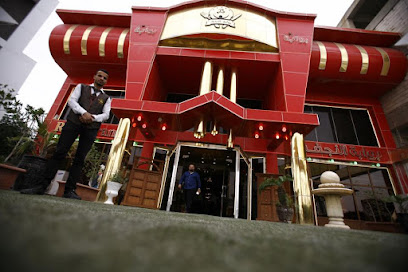
Chili House & Lee's
Discover authentic Iraqi cuisine at Chili House & Lee's in Najaf—where tradition meets taste in every dish.
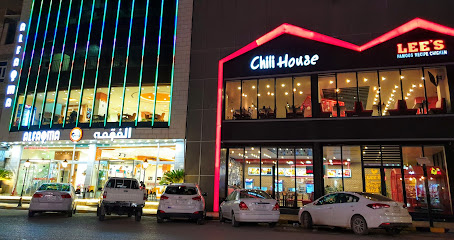
Africano Restaurant
Experience the vibrant flavors of Iraq at Africano Restaurant in Najaf - where tradition meets modern culinary art.
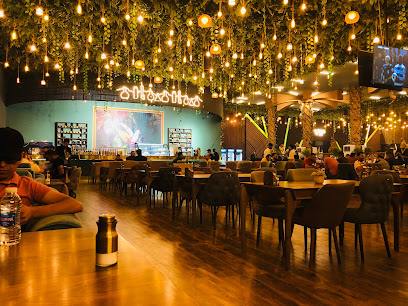
Markets, malls and hidden boutiques
Najaf City Mall
Explore Najaf City Mall, where shopping meets dining and entertainment in a vibrant atmosphere, perfect for tourists and families alike.
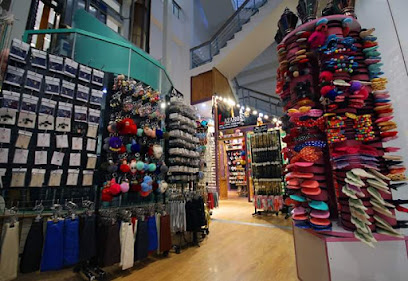
Al Najaf Great Mall Hypermarket
Explore Al Najaf Great Mall Hypermarket, your ultimate shopping destination in Najaf with diverse shops, dining, and family-friendly entertainment.
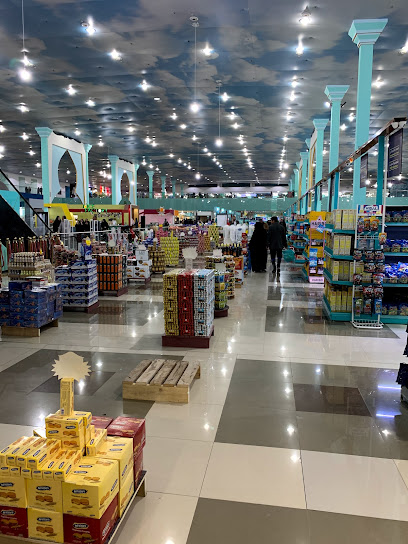
Castle home shopping
Explore Castle Home Shopping in Najaf for a unique and authentic shopping experience, showcasing the best of local produce and traditional goods.
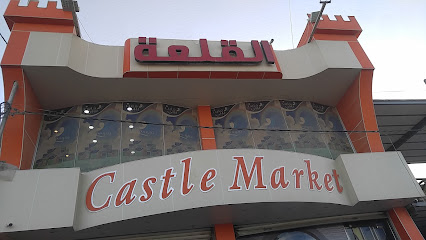
Airport Mall for shopping
Discover retail bliss at the Airport Mall in Najaf, where shopping meets culture in a vibrant atmosphere.
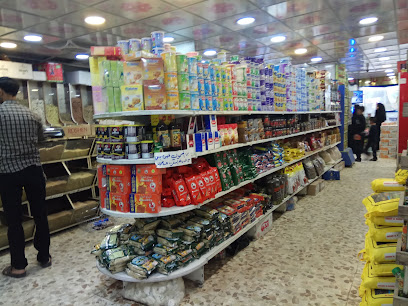
Wholesale Market Najaf
Explore the vibrant Wholesale Market Najaf, a shopping haven filled with local goods, spices, and unique souvenirs that reflect the rich culture of the region.
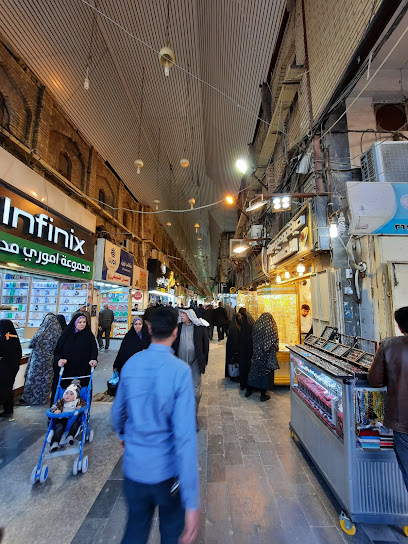
Masjid e Hannah shopping mall
Discover shopping, dining, and entertainment at Masjid e Hannah Shopping Mall in Najaf, a hub of local culture and modern retail.
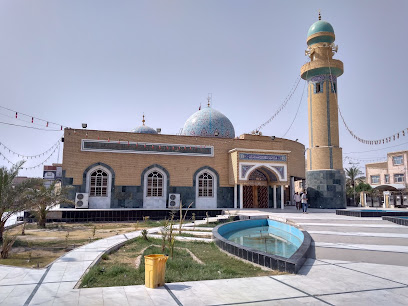
Jawharat Al gharb mall
Discover the heart of Najaf at Jawharat Al Gharb Mall, where local flavors and vibrant shopping await every traveler.
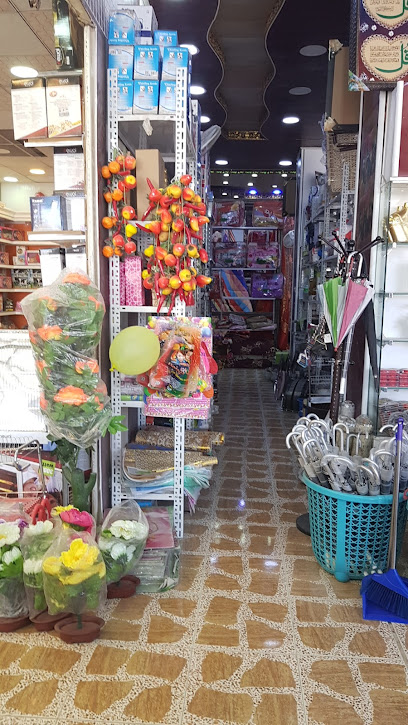
Rose markets
Experience the vibrant Rose Markets in Najaf, where flowers, local crafts, and the essence of Iraqi culture come alive in a bustling shopping paradise.
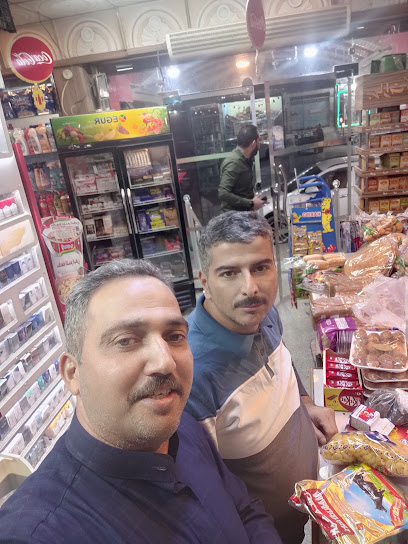
Najaf Market
Discover the heart of Najaf at Najaf Market, where local culture meets vibrant commerce in a unique shopping experience.
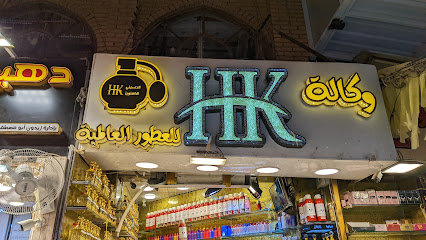
اسواق سيد عقيل الموسوي Saiyd Akeel Al-Mosewi Corner Shop
Experience the vibrant culture and local shopping scene at Saiyd Akeel Al-Mosewi Corner Shop in Najaf, a treasure trove of unique goods and authentic flavors.

Najaf International Airport duty free shop
Explore the Najaf International Airport Duty Free shop for unique souvenirs, luxury goods, and local crafts at unbeatable tax-free prices.
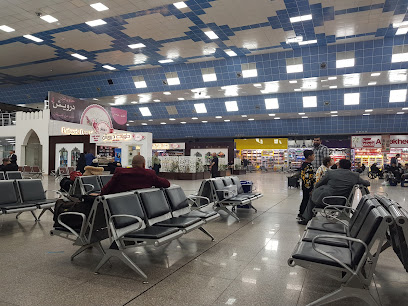
MiniSo
Explore MiniSo in Najaf for unique, affordable gifts and souvenirs that capture the local culture and spirit of your travels.
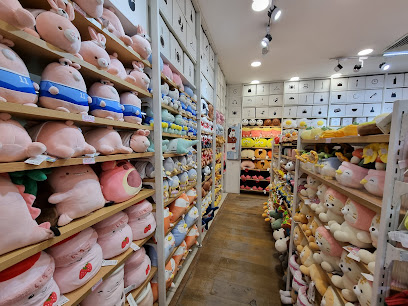
اسواق بركات الرحمن
Explore the vibrant اسواق بركات الرحمن in Najaf for an unforgettable shopping experience filled with local culture and unique finds.

اكسسوارات بانيقيا
Explore اكسسوارات بانيقيا, a hidden gem in Najaf for unique gifts and cultural souvenirs that embody the spirit of Iraq.

الودق للإحذية والحقائب
Discover stylish handbags and shoes at الودق للإحذية والحقائب, your ultimate fashion destination in Najaf, blending quality with unique designs.

Essential bars & hidden hideouts
سجاد بوبجي
Discover the lively atmosphere of سجاد بوبجي in Najaf, where local culture meets modern nightlife in a friendly bar setting.

TooT
Experience the lively ambiance and unique drink offerings at TooT, Najaf's vibrant bar blending local culture with social entertainment.

امير سلمان
Discover the lively atmosphere of Amir Salman Bar in Najaf, where local culture meets contemporary nightlife for an unforgettable experience.

بت صادق الاسدي
Discover the vibrant ambiance of بت صادق الاسدي, a lively bar in Najaf, where local flavors and social experiences come together for an unforgettable evening.

فلان
Discover the lively atmosphere of فلان Bar in Najaf, where tradition meets modern nightlife in a vibrant setting.

تاتا
Experience the vibrant nightlife of Najaf at Tata, a lively bar offering a unique blend of local and international beverages in a welcoming atmosphere.

ثفه
Experience the vibrant nightlife of Najaf at ثفه, a popular bar offering delicious drinks and a lively atmosphere for all visitors.

النجف
Explore Najaf's vibrant bar scene, where tradition meets modernity in a unique cultural experience.

اععال
Experience the vibrant nightlife of Najaf at اععال, a bar that combines local flavor with a welcoming atmosphere for an unforgettable evening.

كافيتريا /الف عافيه
Discover the heart of Najaf's nightlife at Al Aafiya Cafe, where local flavors meet a vibrant atmosphere, perfect for unwinding with friends.

الحانوت
Experience the vibrant nightlife at الحانوت in Najaf, where local flavors meet a lively ambiance for an unforgettable night out.

القيمة
Discover the vibrant nightlife in Najaf at this lively bar, perfect for unwinding and socializing after a day of exploration.

بغداد
Experience Baghdad's vibrant nightlife at its best with a variety of bars offering local and international drinks, live music, and a unique cultural atmosphere.

علوششششش
Experience the vibrant nightlife of Najaf at علوششششش, a cozy bar offering local flavors and a welcoming atmosphere.

Local Phrases
-
- Helloسلام
[salaam] - Goodbyeمع السلامة
[ma'a al-salama] - Yesنعم
[na'am] - Noلا
[laa] - Please/You're welcomeمن فضلك
[min fadlik] - Thank youشكراً
[shukran] - Excuse me/Sorryعذراً
[aatharann] - How are you?كيف حالك؟
[kaifa halik?] - Fine. And you?بخير. وأنت؟
[bikhayr. wa'ant?] - Do you speak English?هل تتحدث الإنجليزية؟
[hal tatahadath al-inglizia?] - I don't understandأنا لا أفهم
[ana la afham]
- Helloسلام
-
- I'd like to see the menu, pleaseأريد أن أرى القائمة، من فضلك
[urid an ara alqaima, min fadlik] - I don't eat meatأنا لا آكل لحم
[ana la akl lahman] - Cheers!في صحتك!
[fi sahtak!] - I would like to pay, pleaseأود أن أدفع، من فضلك
[awad an adfa', min fadlik]
- I'd like to see the menu, pleaseأريد أن أرى القائمة، من فضلك
-
- Help!النجدة!
[alnajda!] - Go away!انصرف!
[insraf!] - Call the Police!اتصل بالشرطة!
[atasil bialshurta!] - Call a doctor!اتصل بطبيب!
[atasil bitalib!] - I'm lostلقد ضللت الطريق
[laqad dalalt altariq] - I'm illأنا مريض
[ana mareed]
- Help!النجدة!
-
- I'd like to buy...أريد أن أشتري...
[urid an ashtari...] - I'm just lookingأنا فقط أتطلع
[ana faqat atatl] - How much is it?كم الثمن؟
[kam althaman?] - That's too expensiveهذا غالي جداً
[hatha ghali jiddan] - Can you lower the price?هل يمكنك خفض السعر؟
[hal yumkinuk khafd alsaeer?]
- I'd like to buy...أريد أن أشتري...
-
- What time is it?كم الساعة؟
[kam alsa'a?] - It's one o'clockالساعة الواحدة
[alsa'at alwahida] - Half past (10)الساعة العاشرة والنصف
[alsa'at al'ashira walnisf] - Morningالصباح
[alsabah] - Afternoonالظهر
[aldhuhr] - Eveningالمساء
[almasa'] - Yesterdayأمس
[ams] - Todayاليوم
[alyawm] - Tomorrowغدًا
[ghadan] - 1واحد
[wahid] - 2اثنان
[ithnan] - 3ثلاثة
[thalatha] - 4أربعة
[arba'a] - 5خمسة
[khamsa] - 6ستة
[sitta] - 7سبعة
[sab'a] - 8ثمانية
[thamania] - 9تسعة
[tasia] - 10عشرة
[ashara]
- What time is it?كم الساعة؟
-
- Where's a/the...?أين...
[ayn...] - What's the address?ما هو العنوان؟
[ma hu al'anaan?] - Can you show me (on the map)?هل يمكنك أن تريني (على الخريطة)؟
[hal yumkinuk an tureeni (ala alkhareeta)?] - When's the next (bus)?متى الحافلة القادمة؟
[mata alhafilat alqadima?] - A ticket (to ....)تذكرة (إلى ...)
[tazkirat (ila ...)]
- Where's a/the...?أين...
History of Najaf
-
Najaf was founded in the 8th century AD by the Abbasid Caliph Harun al-Rashid. It quickly became a significant city due to its proximity to the resting place of Imam Ali, a central figure in Shia Islam.
-
The Imam Ali Shrine is the most important religious site in Najaf. It is believed to be the burial place of Ali ibn Abi Talib, the first Shia Imam and the fourth caliph in Sunni Islam. The shrine has been a pilgrimage destination for millions of Shia Muslims throughout history.
-
Najaf has long been a center of Shia Islamic scholarship. The Hawza, an Islamic seminary system, has educated many of the leading Shia clerics and scholars. This tradition of learning has been maintained for over a thousand years, making Najaf a crucial center for religious education.
-
During the Safavid Empire (1501-1736), Najaf gained prominence as a key city in the Shia world. The Safavids, who promoted Shia Islam as the state religion, invested heavily in Najaf's religious institutions and infrastructure, further solidifying its importance.
-
In the 20th and 21st centuries, Najaf has played a significant role in Iraqi politics. It was a focal point during the 1920 Iraqi revolt against British rule and later during the 1991 Shia uprising against Saddam Hussein's regime. The city continues to be a bastion of Shia political and religious activity.
-
During the Iran-Iraq War (1980-1988), Najaf was a strategic city due to its religious significance and its location near the Iran-Iraq border. The city suffered from military operations and political repression, but it remained a symbol of resilience for its inhabitants.
-
After the 2003 invasion of Iraq, Najaf became a central location for the new political dynamics in the country. The city saw conflict between coalition forces and Shia militias, particularly the Mahdi Army. Despite these challenges, Najaf has been a site of reconstruction and political discourse in the new Iraq.
Najaf Essentials
-
Najaf is served by the Al Najaf International Airport (NJF), located about 10 kilometers from the city center. It has direct flights to and from major cities in the Middle East, including Dubai, Istanbul, and Tehran, as well as some European destinations. From Baghdad, you can take a bus or hire a private taxi. The bus journey takes around 2-3 hours depending on traffic and security checkpoints.
-
Najaf has a variety of transportation options. Taxis are the most common and convenient way to get around the city. Ensure you negotiate the fare beforehand or insist on using the meter. Public minibuses (known as 'coasters') are available for local travel, though they can be crowded. Car rentals are also an option but driving can be challenging due to local traffic conditions. Walking is feasible for short distances, especially in the city center.
-
The official currency in Iraq is the Iraqi Dinar (IQD). Credit cards are accepted in some hotels and larger establishments, but cash is typically preferred. ATMs are available, but it's advisable to carry sufficient cash, especially when visiting smaller shops, markets, and rural areas. Currency exchange is available at the airport, banks, and exchange offices in the city.
-
Najaf is considered relatively safe for tourists, especially in the areas surrounding the Imam Ali Shrine and the old city. However, it is important to exercise caution. Avoid walking alone at night and steer clear of areas with low visibility. Crime targeting tourists is rare but can occur; remain vigilant and keep personal belongings secure. Check for any travel advisories before your visit.
-
In case of an emergency, dial 104 for police, 115 for ambulance, and 113 for fire services. The main hospital in Najaf is the Al-Sadr Teaching Hospital, which provides emergency medical services. It is advisable to carry a travel insurance policy that covers medical emergencies. For minor health issues, pharmacies are widely available and can provide over-the-counter medications.
-
Fashion: Do dress modestly. Women should wear long skirts or pants and cover their heads with a scarf, especially when visiting religious sites. Men should avoid wearing shorts. Religion: Do respect religious customs. Remove your shoes before entering mosques and shrines. Public Transport: Do be courteous to fellow passengers. Don't eat or drink on public transport. Greetings: Do greet people with 'As-Salamu Alaikum' (Peace be upon you) and respond with 'Wa Alaikum As-Salam' (And peace be upon you). A handshake is common among men but less so between men and women. Eating & Drinking: Do try local dishes and accept food and drink offerings. Don't refuse hospitality, as it can be considered impolite.
-
To experience Najaf like a local, visit the bustling souks in the old city where you can buy traditional Iraqi goods, from spices to handmade crafts. Engage with locals; they are often friendly and eager to share stories about their city and its rich history. Don’t miss the chance to visit the Imam Ali Shrine, a focal point of the city. Another highlight is the Wadi-us-Salaam cemetery, the largest in the world, offering a unique historical perspective.
Trending Landmark in Najaf
-
Kufa Mosque
-
Imam Ali Holy Shrine
-
Al-Sahla Great Mosque
-
Al sheraa complex for Entertainment
-
Garden revolution of the twentieth
-
Najaf International Airport
-
Martyr Monument
-
Najaf Amusements Park
-
Marah City
-
فندق زمزم السياحي
-
Najaf International Exhibition
-
Al-Ukhaidir Fortress
-
Masjid e Hannah shopping mall
-
House of Imam Ali (as)
-
Al Najaf Residence
Nearby Cities to Najaf
-
Things To Do in Karbala
-
Things To Do in Baghdad
-
Things To Do in Amara
-
Things To Do in Arar
-
Things To Do in Basra
-
Things To Do in Kirkuk
-
Things To Do in Sulaymaniyah
-
Things To Do in Jahra
-
Things To Do in Kuwait City
-
Things To Do in Farwaniya
-
Things To Do in Hawalli
-
Things To Do in Salmiya
-
Things To Do in Erbil
-
Things To Do in Sakakah
-
Things To Do in Sabah Al-Salem








